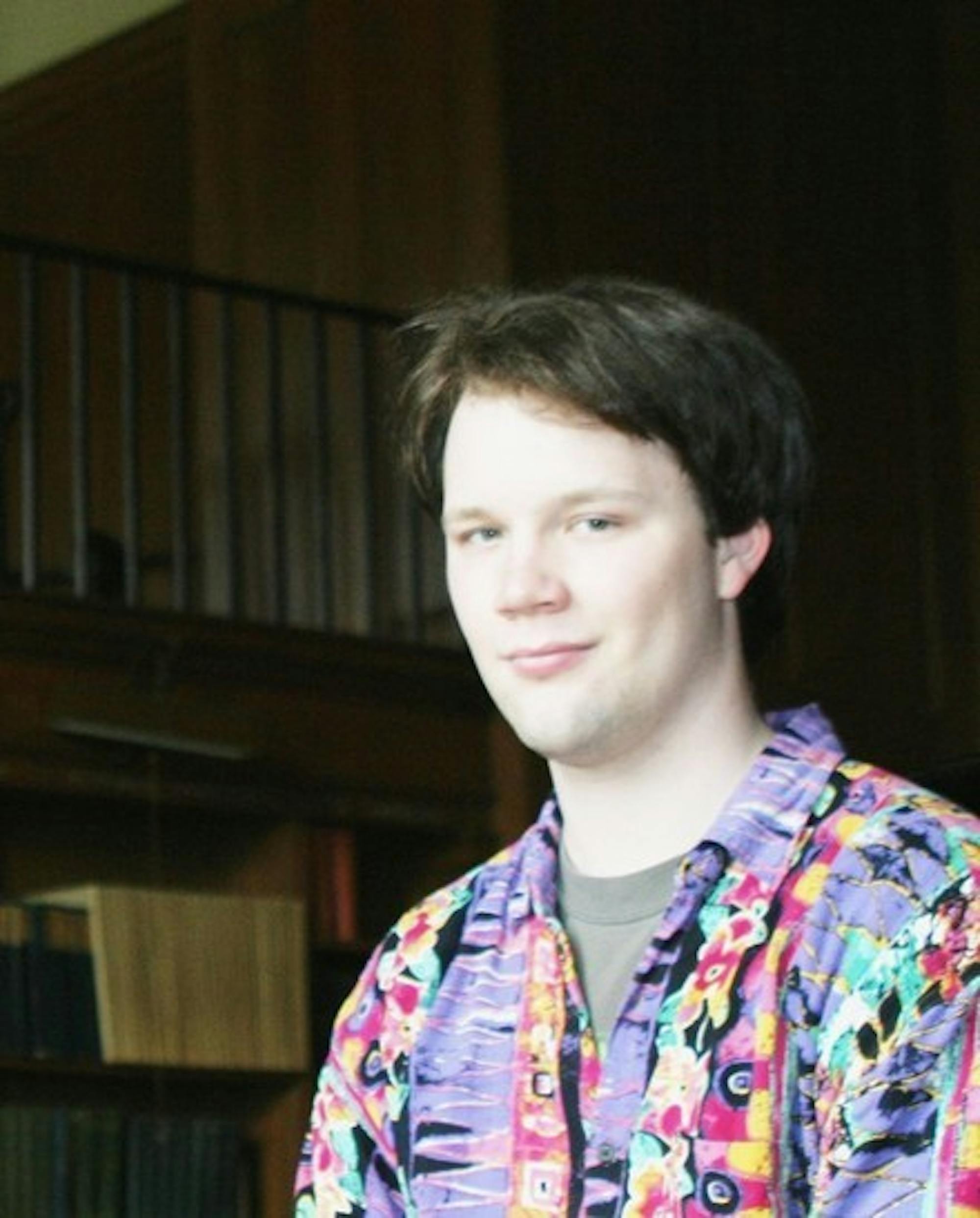Butts said that he was never driven by the grade that would appear on his transcript, but consistently did his best to produce quality work.
"The only challenge I ever gave myself was that I owed it to myself to give maximal effort, and if that translates into an A, if that translates into an A- or a B, that's not really important," Butts said. "The metric that was important to me was maximal effort."
Butts learned that he would be valedictorian Thursday to allow him time to prepare his remarks for Commencement.
"Obviously it's a great honor," he said, "and this is a remarkable opportunity to address the class. I think more than it reflects on me it reflects on the institution, and my family and my friends and all the people who have helped me."
Butts received numerous academic citations and awards for outstanding scholarly work during his Dartmouth career, including the Phi Beta Kappa Sophomore Prize for achieving the highest GPA in 2004, but he said the citation that stands out most was one he received in a government class he took during his junior fall.
The course, a seminar called Military State Craft an International Politics, ignited Butts' interest in international security. The project Butts produced on the Korean military earned him a citation and inspired his continued interest in the issues surrounding the subject, which he plans to study at the Massachusetts Institute of Technology while working towards an advanced degree in political science.
In addition to this citation, Butts was a Rufus Choate Scholar -- with a GPA that ranked in the top 5 percent of undergraduates -- each of his four years at Dartmouth and has received the government department's Edson Prize three times. He has also been selected by the Coed, Fraternity and Sorority Community as a Class of 2006 Scholar.
A published scholar before graduation, Butts has authored two articles in undergraduate journals, one in The Undergraduate Quarterly and one in The Dartmouth Undergraduate Journal of Science.
In his speech at Commencement, Butts, who won the John Sloan Dickey Center for International Understanding's 2006 Chase Peace Prize, said he plans to discuss the former Dartmouth president and "how he really embodied many of the core values of this institution."
Butts said that his time at Dartmouth was marked by interactions with other members of the College community.
"There are so many tremendously smart people on this campus, and that's one of the great pleasures of going to Dartmouth," he said, "that everywhere you go there's interesting people ... there's any number of people who would be qualified to do this, who could go up there and give a better speech than I can, at the end of the day it just happens to be that this is the metric that they used to keep score."
His membership in Alpha Theta coed fraternity has been one of the more influential aspects of his Dartmouth career, Butts said.
"I've been exposed to a wonderful array of people that I've enjoyed spending time with," Butts said, "that extends into the classroom too. The human interactions have been really great all together, and that more than anything else is going to be the part that I miss."
The Class of 2006 salutatorian, Dean Drizin, has maintained a 3.99 GPA through his time at Dartmouth. Drizin is a government major with a chemistry minor, and spent part of his senior year writing an honors thesis on the Medicare hospice benefit and the impact it has on dying patients.
Drizin has also been a Rufus Choate Scholar four years in a row, and is a member of the Phi Beta Kappa society. Like Butts, Drizin has received the government department's Edson Prize.
An active member of the Dartmouth community, Drizin is a member of the heavyweight crew team, a member of Sigma Phi Epsilon fraternity and participated in the Rockefeller Leadership Fellows Program and the Diversity Peer Program.




